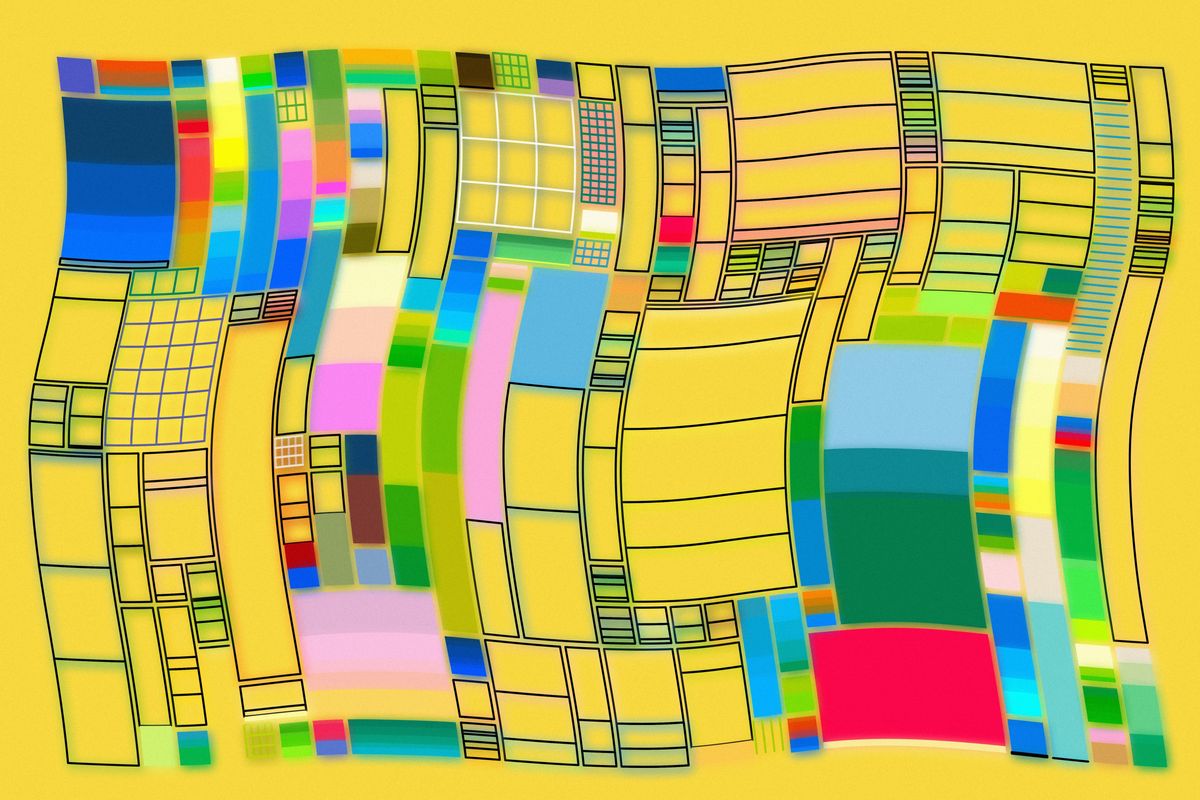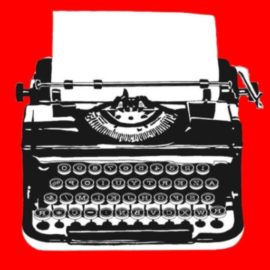Welcome back everyone 👋 and big thanks to all new subscribers - thanks for joining along for the ride!
This is the weekly Gorilla Newsletter - we have a look at everything noteworthy from the past week in generative art, creative coding, tech and AI. As well as a sprinkle of my own endeavors.
Enjoy - Gorilla Sun 🌸
All the Generative Things
Hachures by Matt DesLauriers
Matt DesLauriers masterfully combines pen plotters and erosion algorithms to create stunning and scribbly topographic maps in his most recent piece titled Hachures:
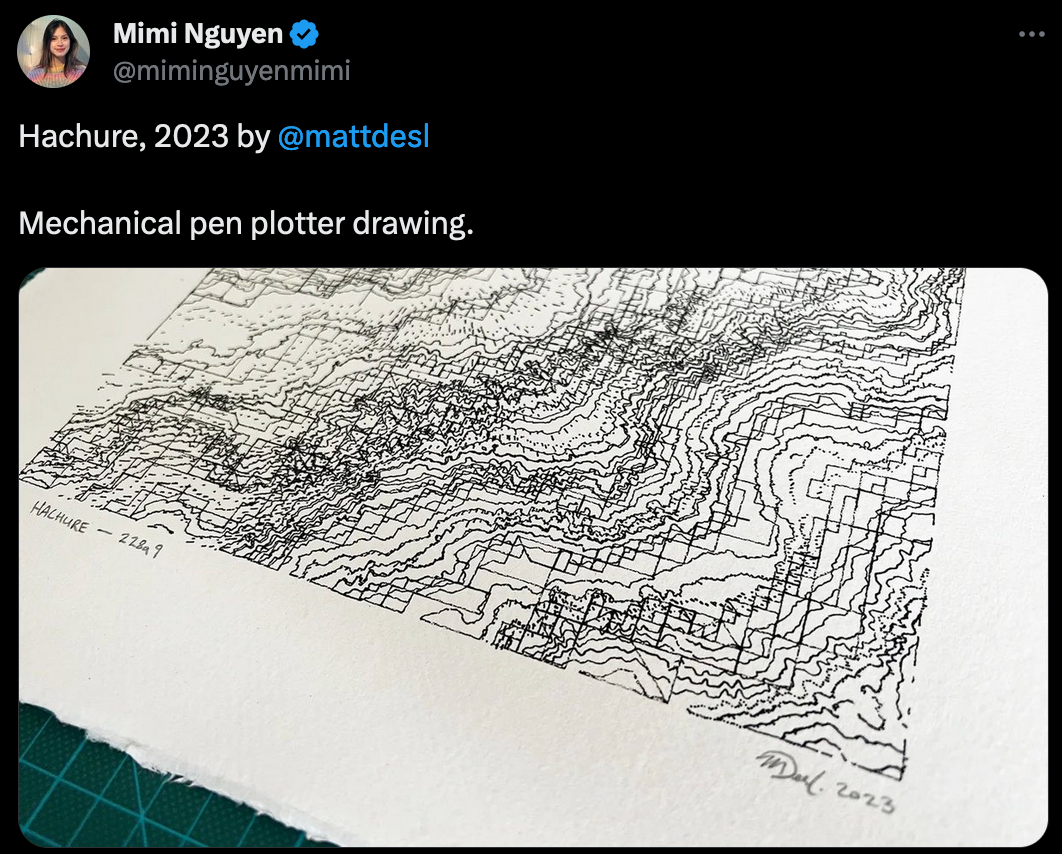
Hachures was one of the pieces presented at Paris Photo 2023, as a part of the "In Conversation With" curation by Mimi Nguyen - an overview of the other projects can be found here:
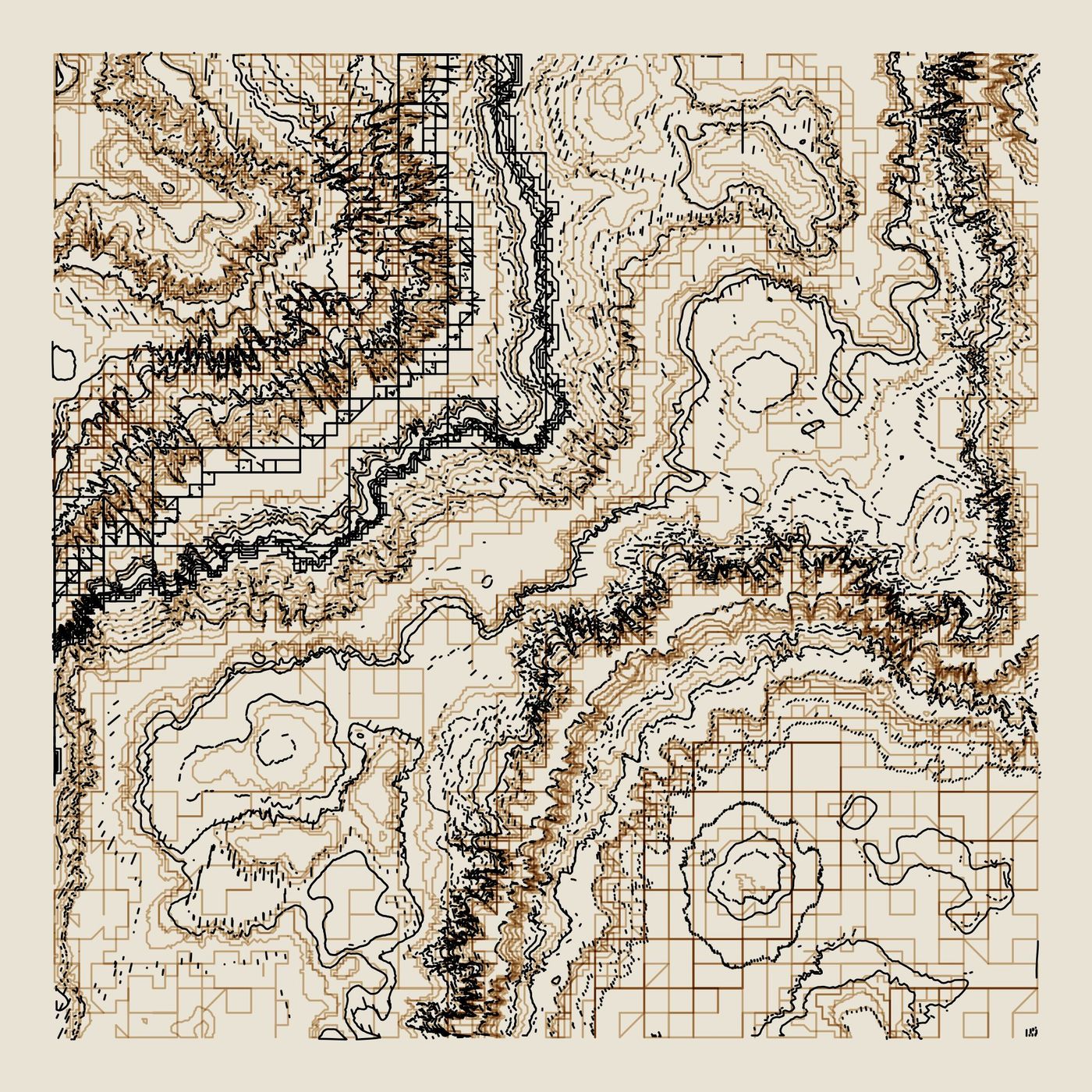
I'm a huge fan of Matt DesLaurier's work and incredibly inspired by his approach to generative art in general, hence I was delighted to see a short 'Verse Meets' in which he explains how Hachures came to be, how working with plotters is at the same time limiting but also creatively liberating, and his fascination with generative topography:
Terrain generation is a fascinating branch of computer graphics, and ever since I did my deep dive into Nat Sarkissian's generative artwork 'Eucalyptus and Sagebrush' it's been something that I've wanted to revisit and explore for myself, but I never really got back around to it:
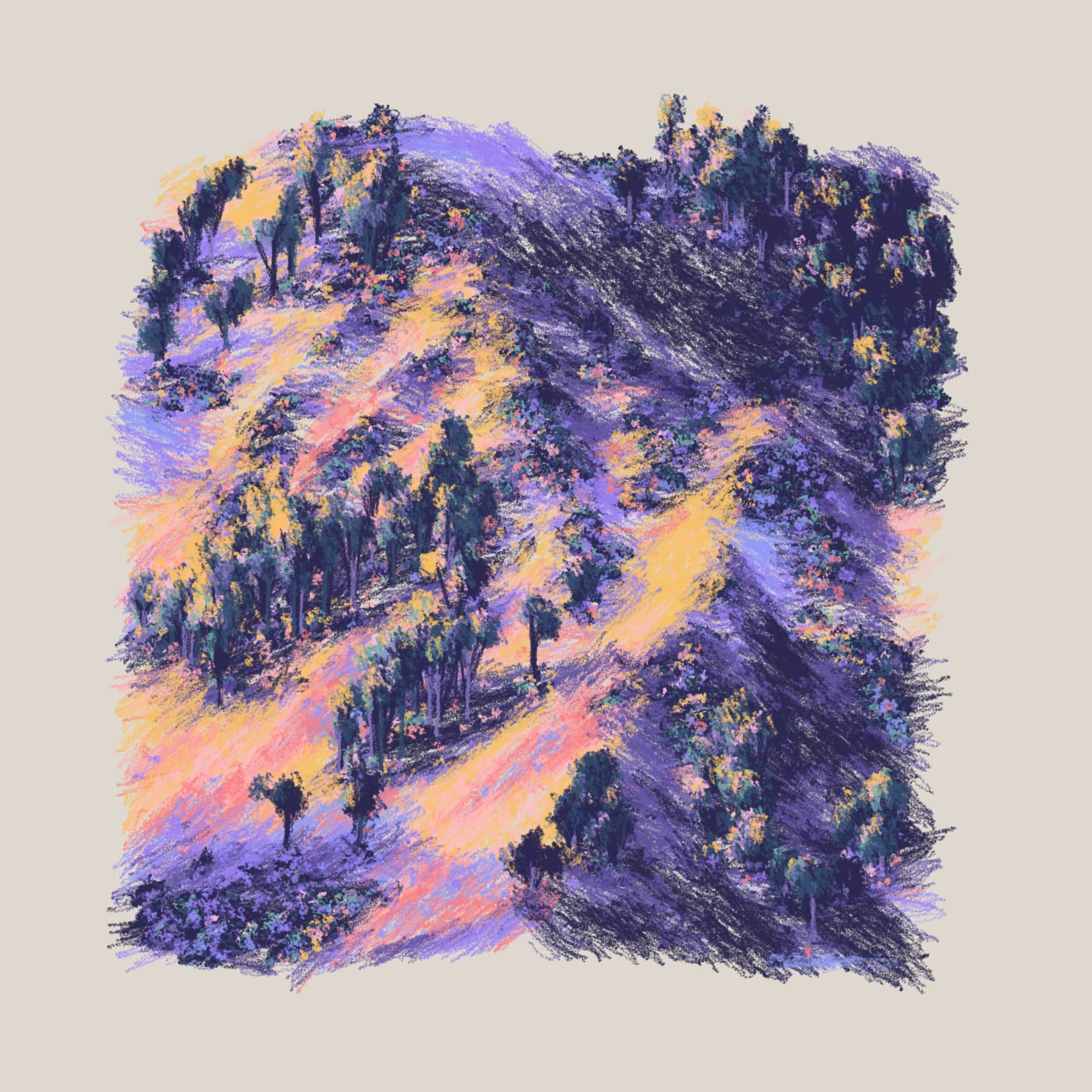
and the simulation of natural processes for the creation of topographically realistic landscapes is .
What's even more impressive is the algorithmic process behind this piece
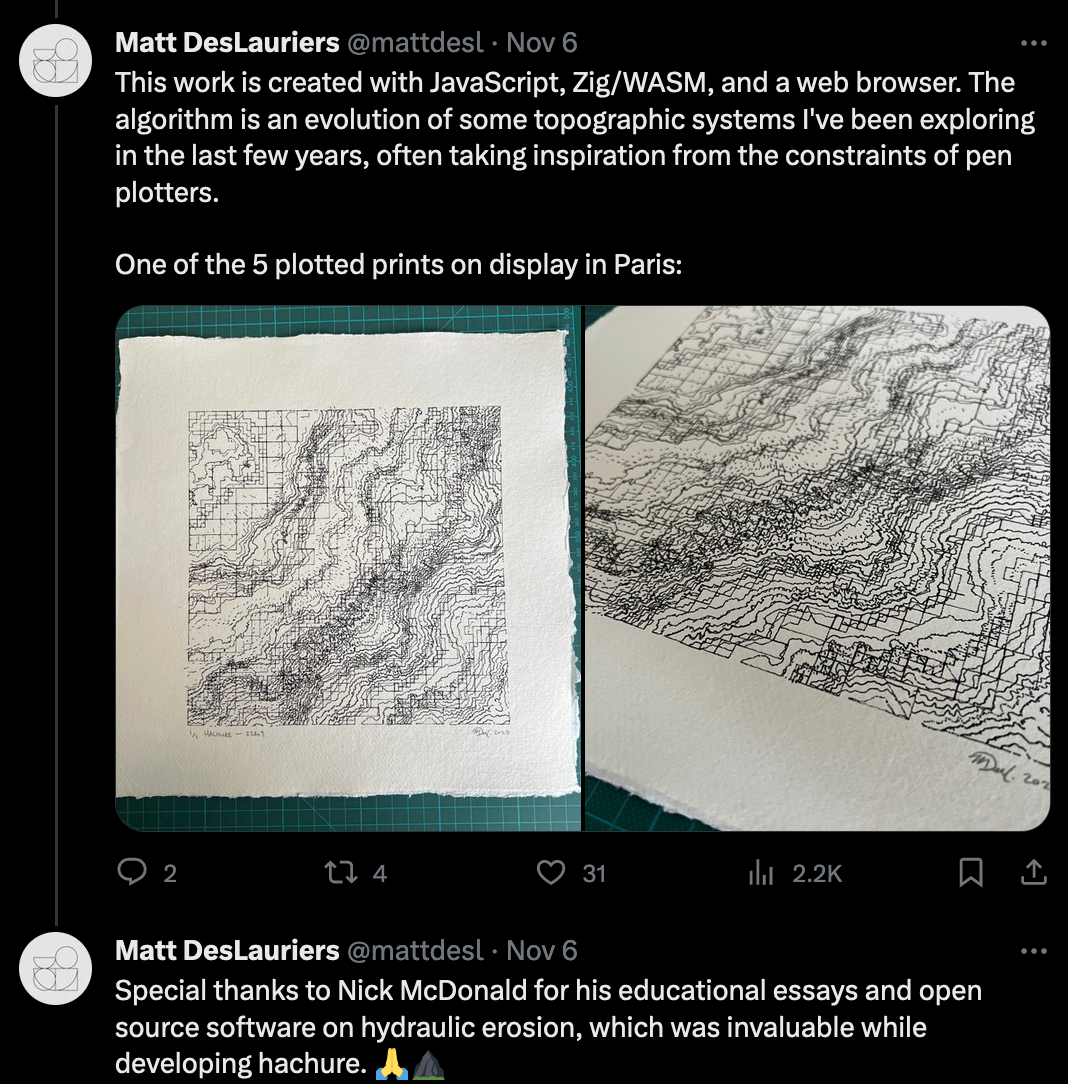
A library for generative brush strokes
You might know Alessandro as the creator of Pensado a Mano, one of the very first manually code driven fx(hash) projects. Over the last week he's posted regular updates on a library that he's been working on:
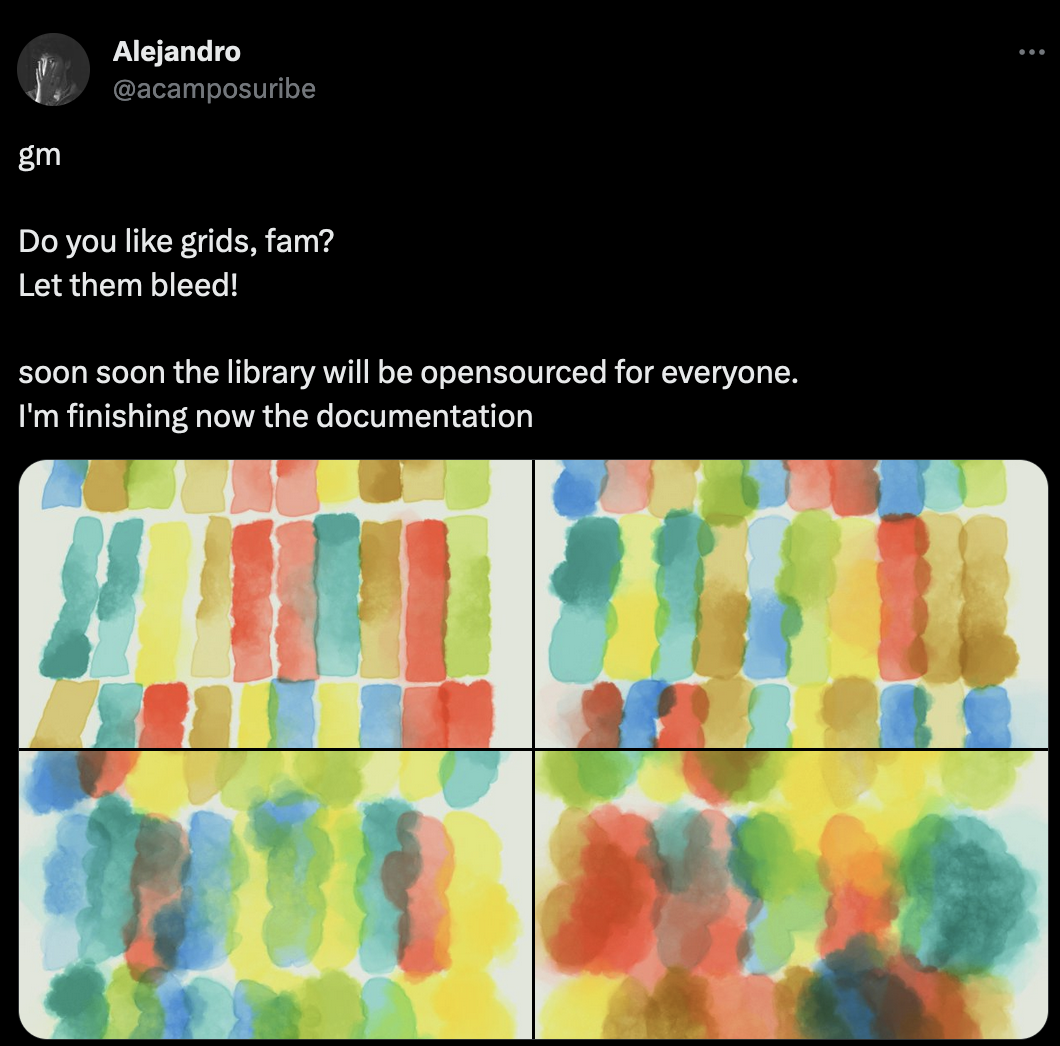
Simulating water colors was one of the first things that I experimented with when I got into generative art, which might be a good point to re-share the by now legendary Tyler Hobbs article on the topic:

And it seems that the library is already in shape and ready to be used:
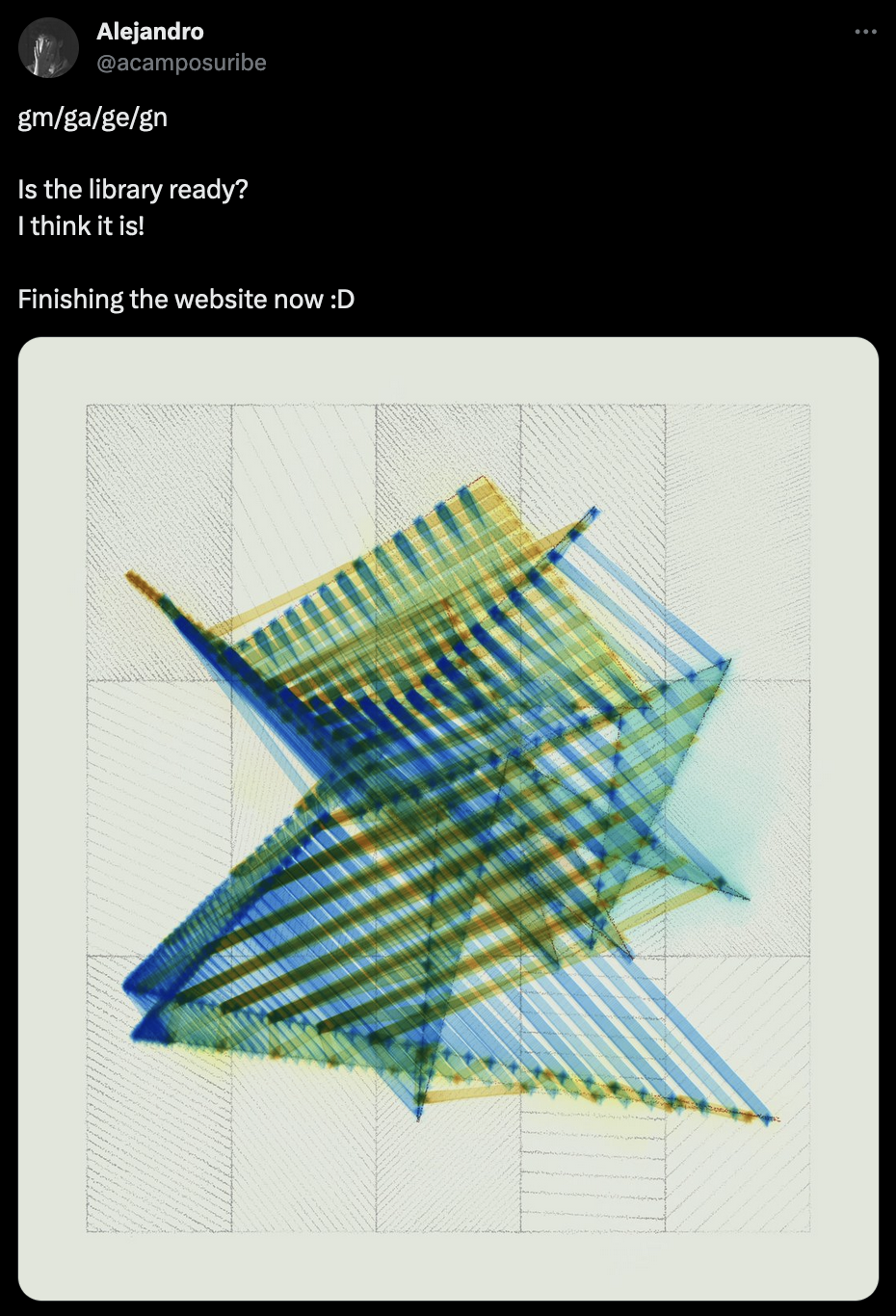
You'll probably want to check in with Alejandro later on details about the library, but the repo is already up here:
With a companion website that details its usage here:

And while we're talking about vritual brush strokes - I also have to share Juhani's exploration in that regard:
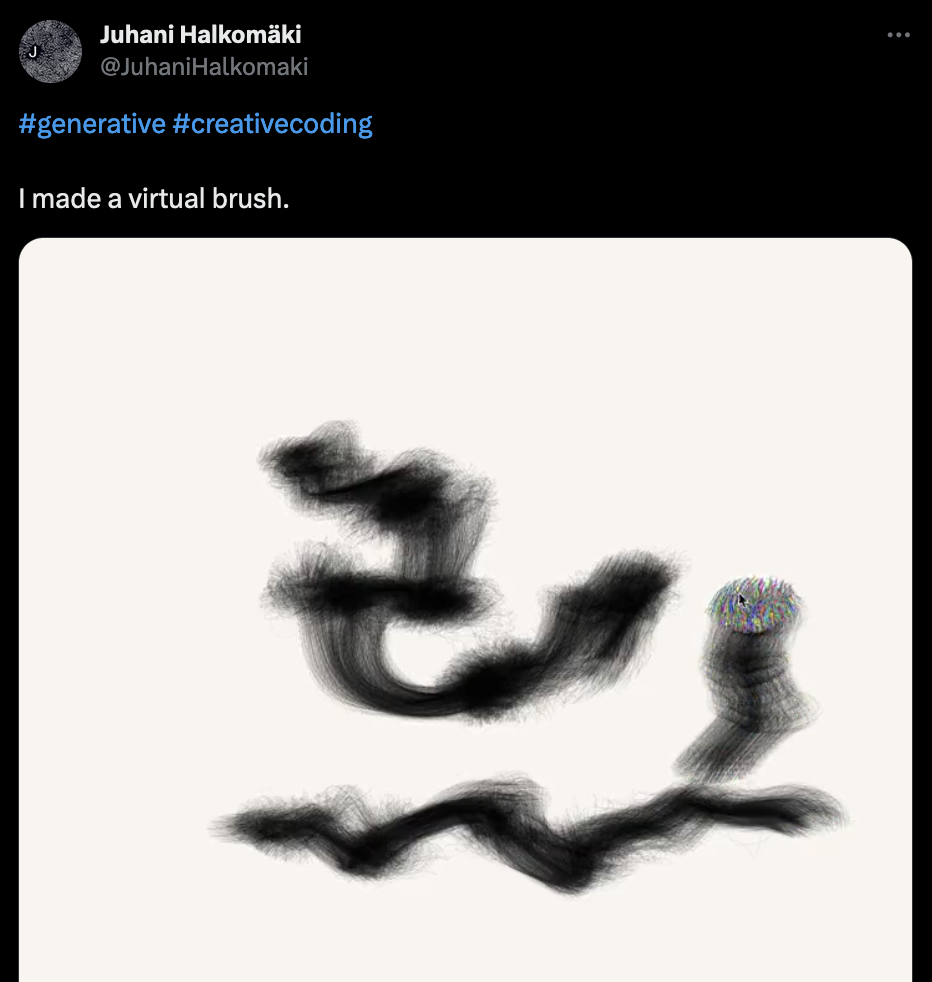
It seems that Juhani is only capable of putting out one banger after another.
Alba is Launching
The ETH based generative art platform is back, and after a long summer full of curated projects they are now ready a proper launch opening up the platform for all artists to mint their works:
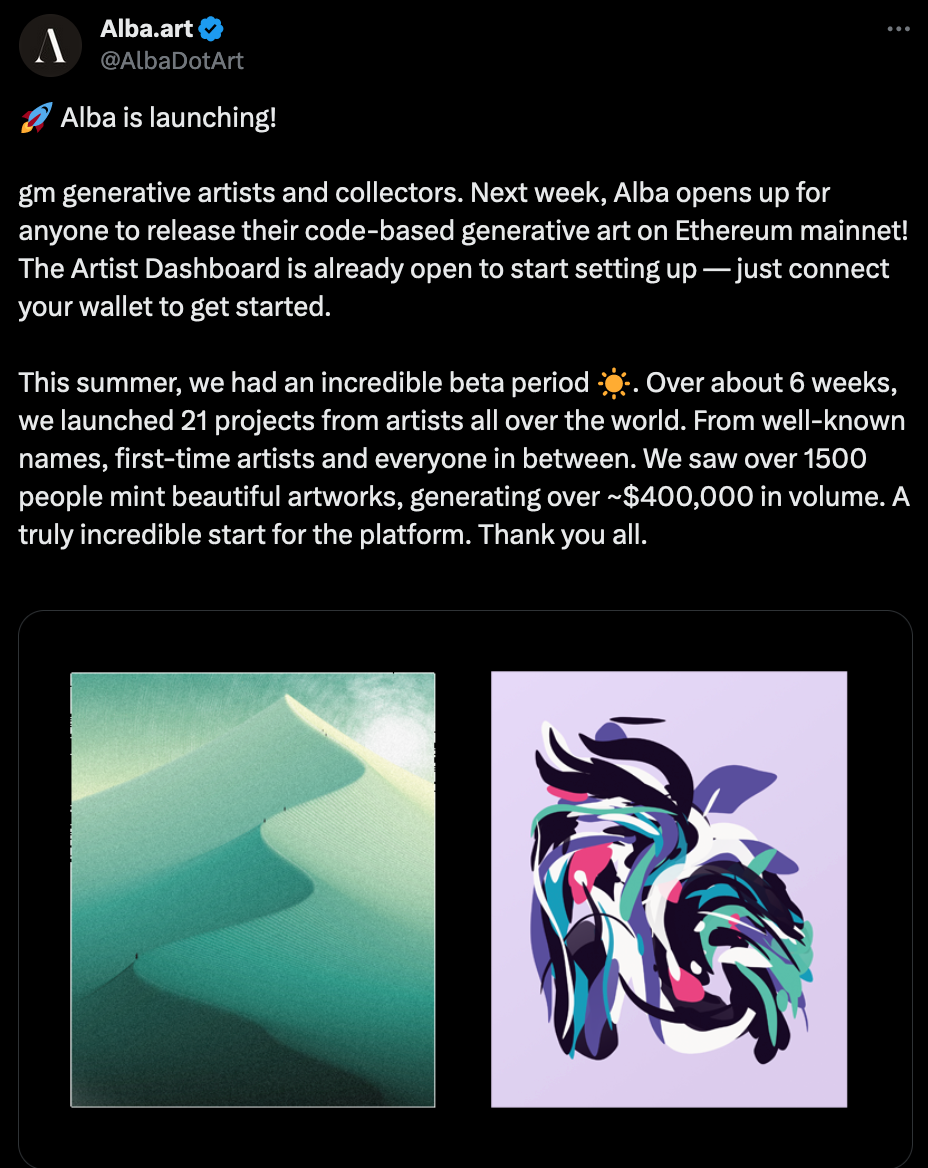
We’ve addressed numerous UX issues brought up in the beta, and we’ve added pre-built starter templates for working with the most popular libraries and languages. We’re just getting started here, so expect a lot more improvements soon.
Exciting times for generative artists! This said I'd like to shamelessly plug my own work on Alba 'The Great Traversal' - it's still got some remaining unsold editions:
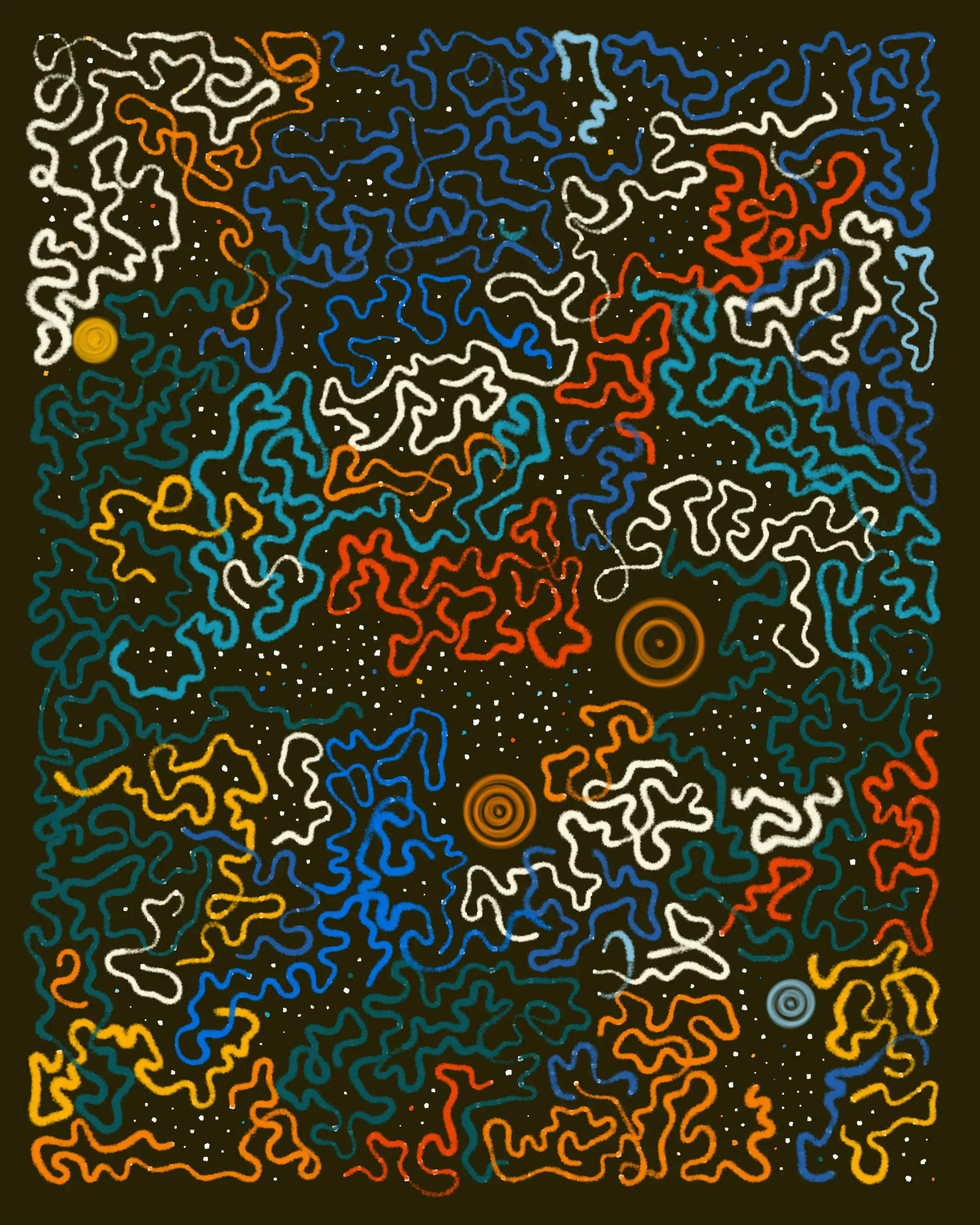

Genuary 2024
And to wrap up, here's a quick intermission by Piter Pasma - Genuary 2024 is knocking on the doors:

I am in no way, shape, or form ready for it :)
Pen and Plottery
At the intersection of generative art and physical media - I'm not entirely certain if this section will have a permanent spot on the newsletter in the future, but on some weeks I simply come across a lot of plotter based projects, as well as works that aim to do something generative that goes beyond the digital canvas.
I like to be creative with my titles, and here the title of this section "Pen and Plottery" is inspired the 2012 indie game title "Sword and Sworcery" - and for some reason I've been thinking about this game a lot:
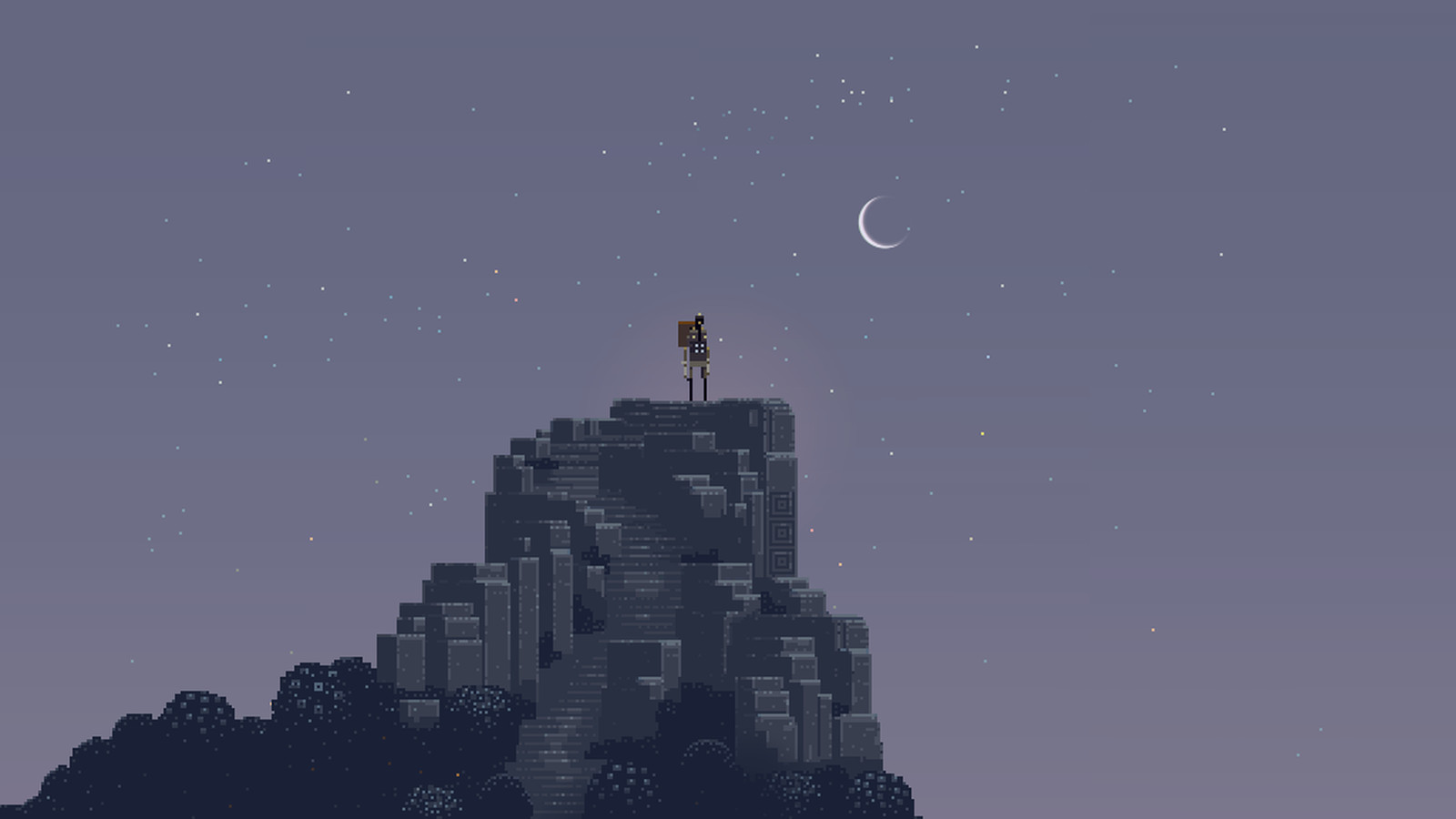
I never finished the game actually, but it's deeply carved into my memory - it was the very first indie title that I played that didn't try to adhere to regular video game mechanics, but much rather aimed to be a piece of art. It won numerous awards when it came out:
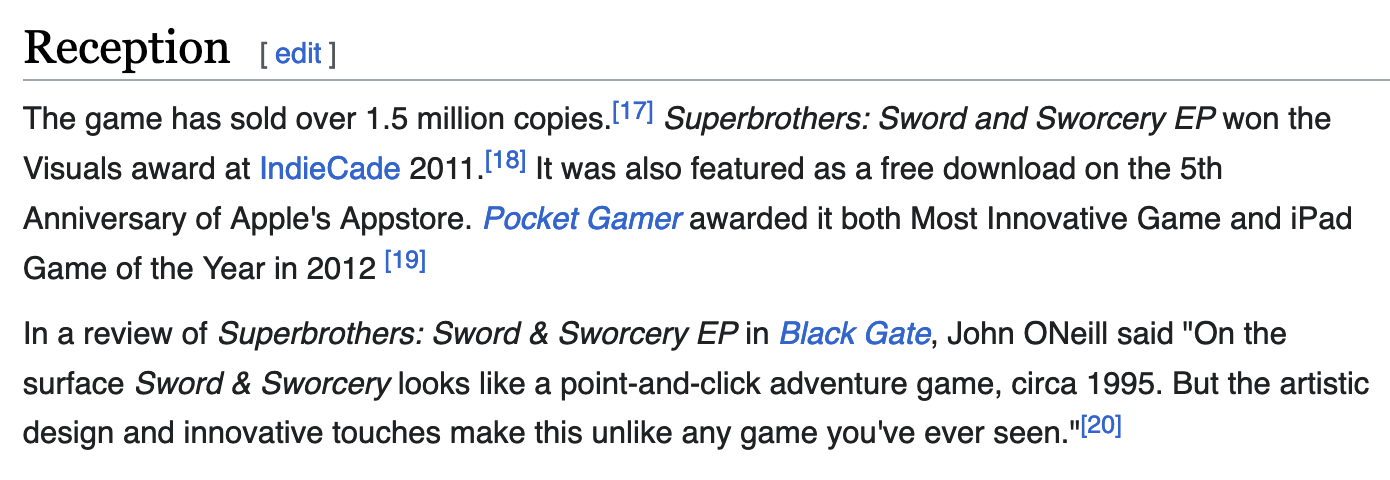
Maybe one day when I'm not stretched as thin as these days I'll write some more about indie games, and maybe even have time to play some more.
But anyway, onto the actual things I wanted to showcase here!
Fictional Lullaby - A dev story by Licia He
Licia He wrote a thread about her most recent generative project Fictional Lullaby that will release with +GRAPH, Feral File's throwback to their first GRAPH group show:
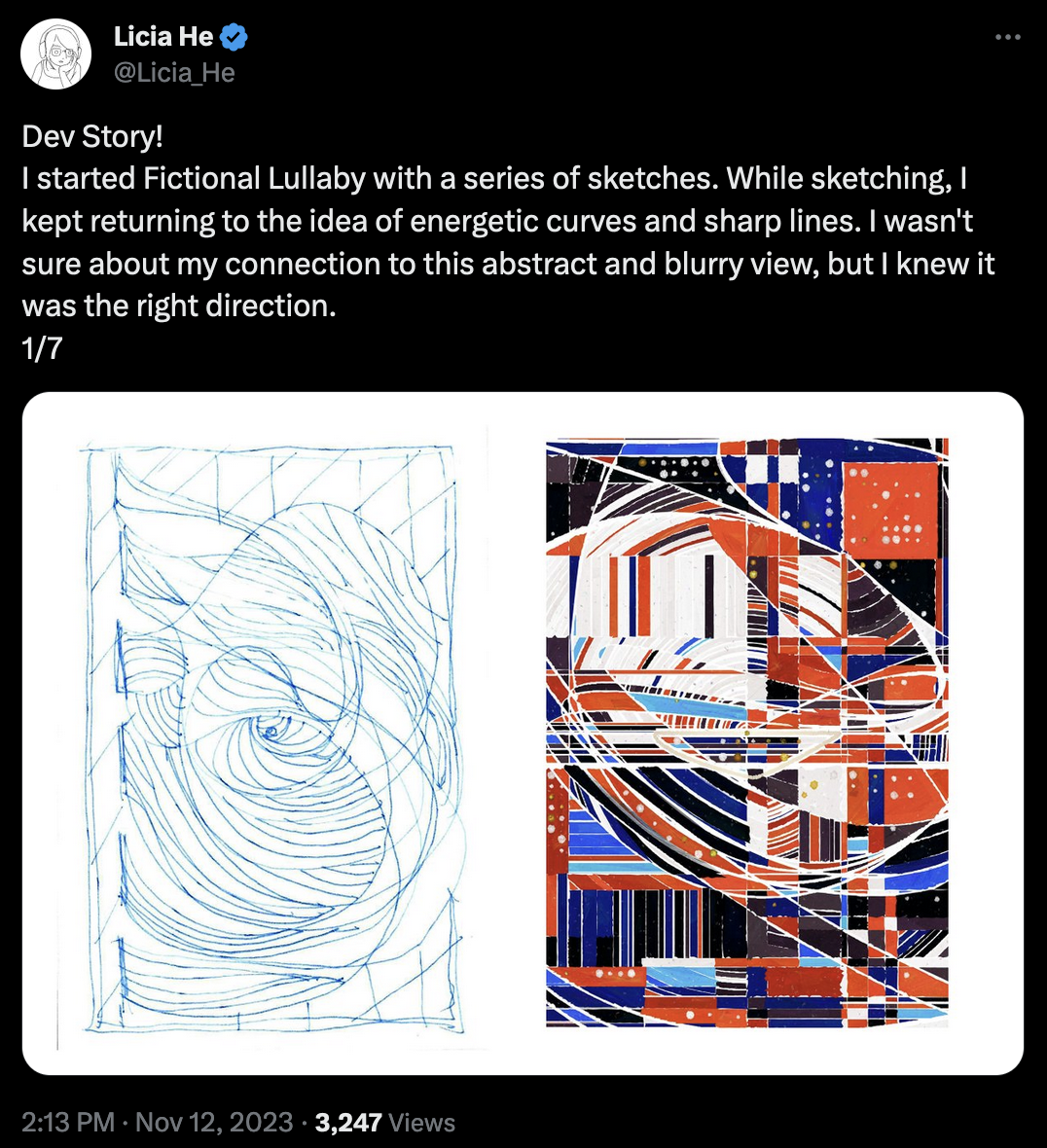
The thread is accompanied by a much more in depth write-up over on her website in which she captures the entire process and inspirations behind the piece - the article is profoundly insightful and a must read:
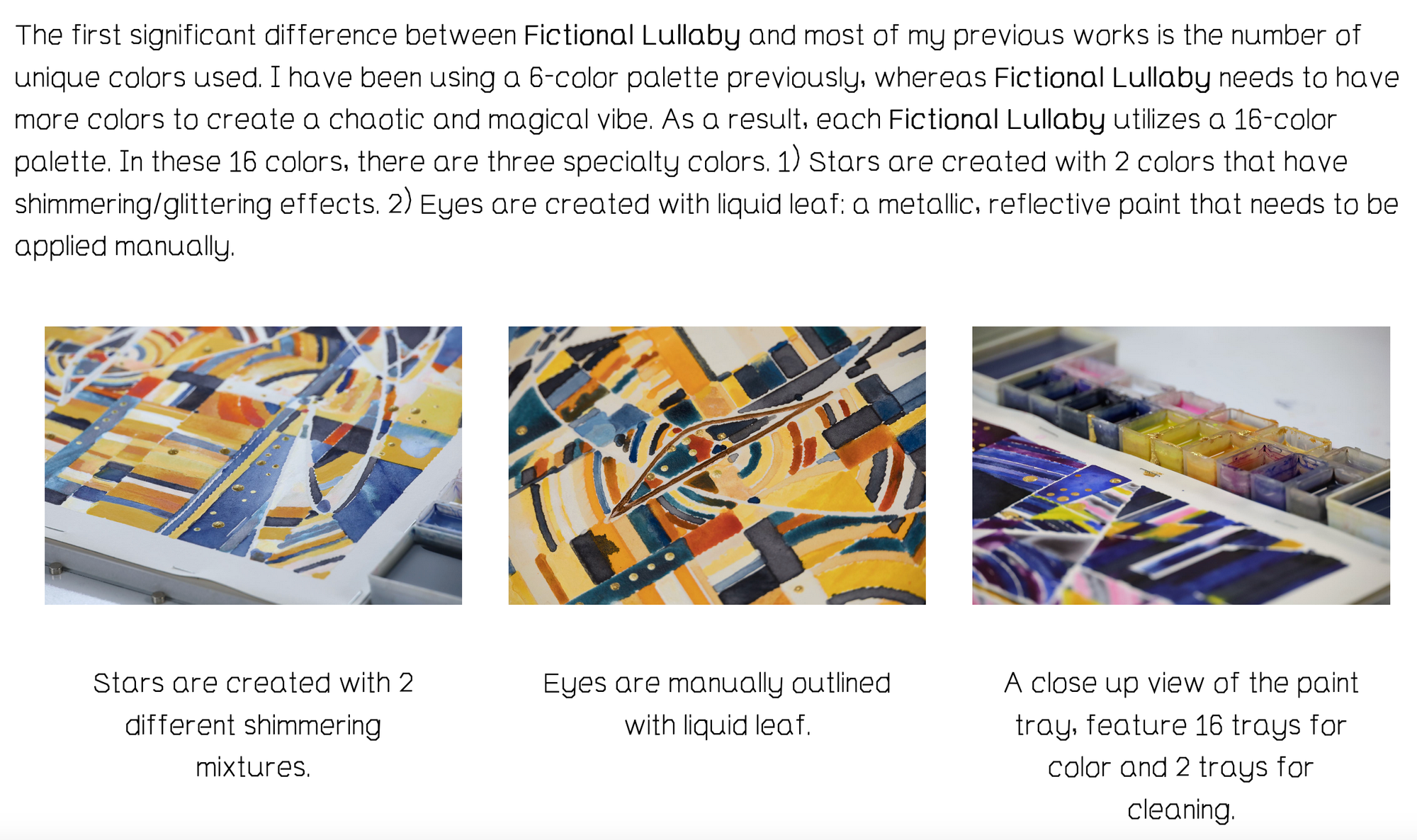
What's more is that many of the examples in the article are generative, meaning that you can refresh them by means of a button click and generate different variations for them. It was a lot of fun exploring the page with these interactive examples!
Plotter Stop Motion
Jamese Merill, another artist participating featured in +GRAPH, and the creator of the stellar tokens ORI and Runaway has making some really cool stop motion plotter animations:
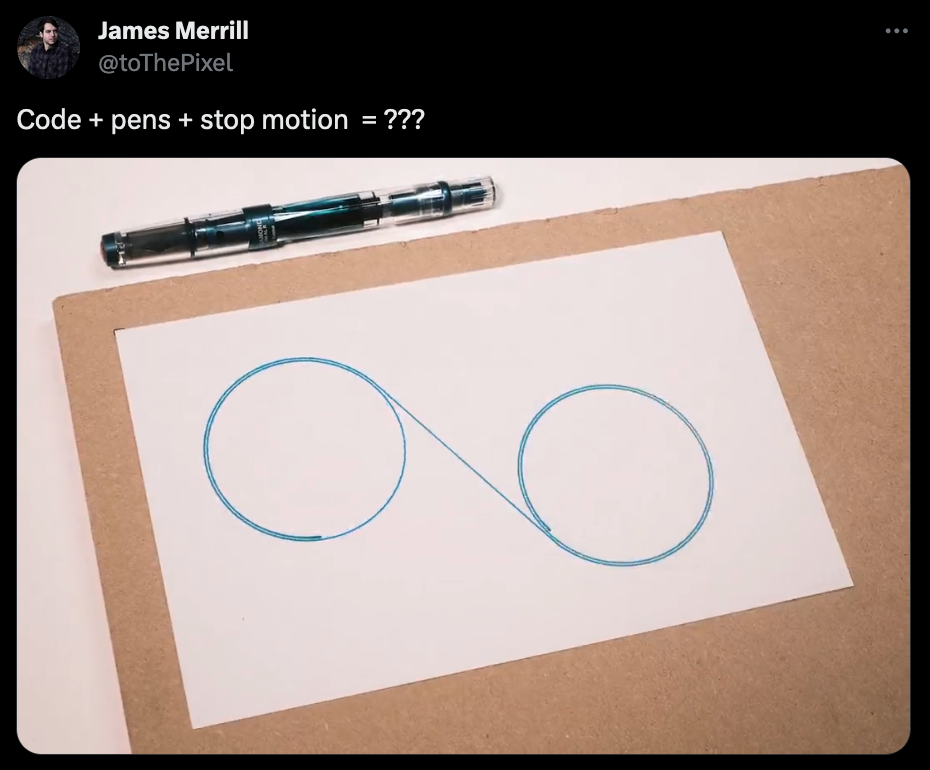
I only tried my hand at stop motion once, and I can tell you that it is a lot of work! James makes it look so easy:
The Chromatic Typewriter by Tyree Callahan
The Chromatic Typewriter is as the name suggests an invention that turns a typewriter into water painting machine:
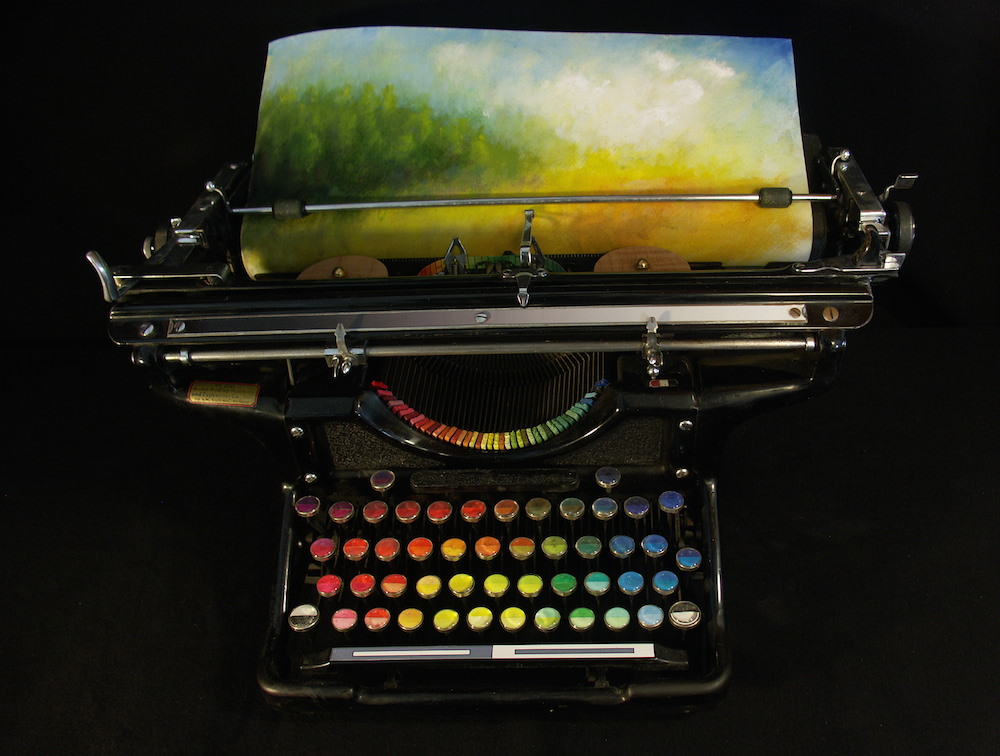
The thought of fusing typewriters with paint first came to Tyree Callahan while he was putting the finishing touches on a watercolour painting. He decided to feed this watercolour through an old Olivetti typewriter in order to add text through the painting, and this action suddenly inspired him to transform a 1937 Underwood Standard typewriter into The Chromatic Typewriter.
Although maybe not the most practical device to create waterpaintings, it is still a very interesting concept, repurposing the typewriter for a different artistic goal.
On/Off Screen by Vertical Crypto
Vertical Crypto presents their upcoming group show; running from the 17th to the 22nd of November in the heart of London they're featuring 6 stellar generative artists:
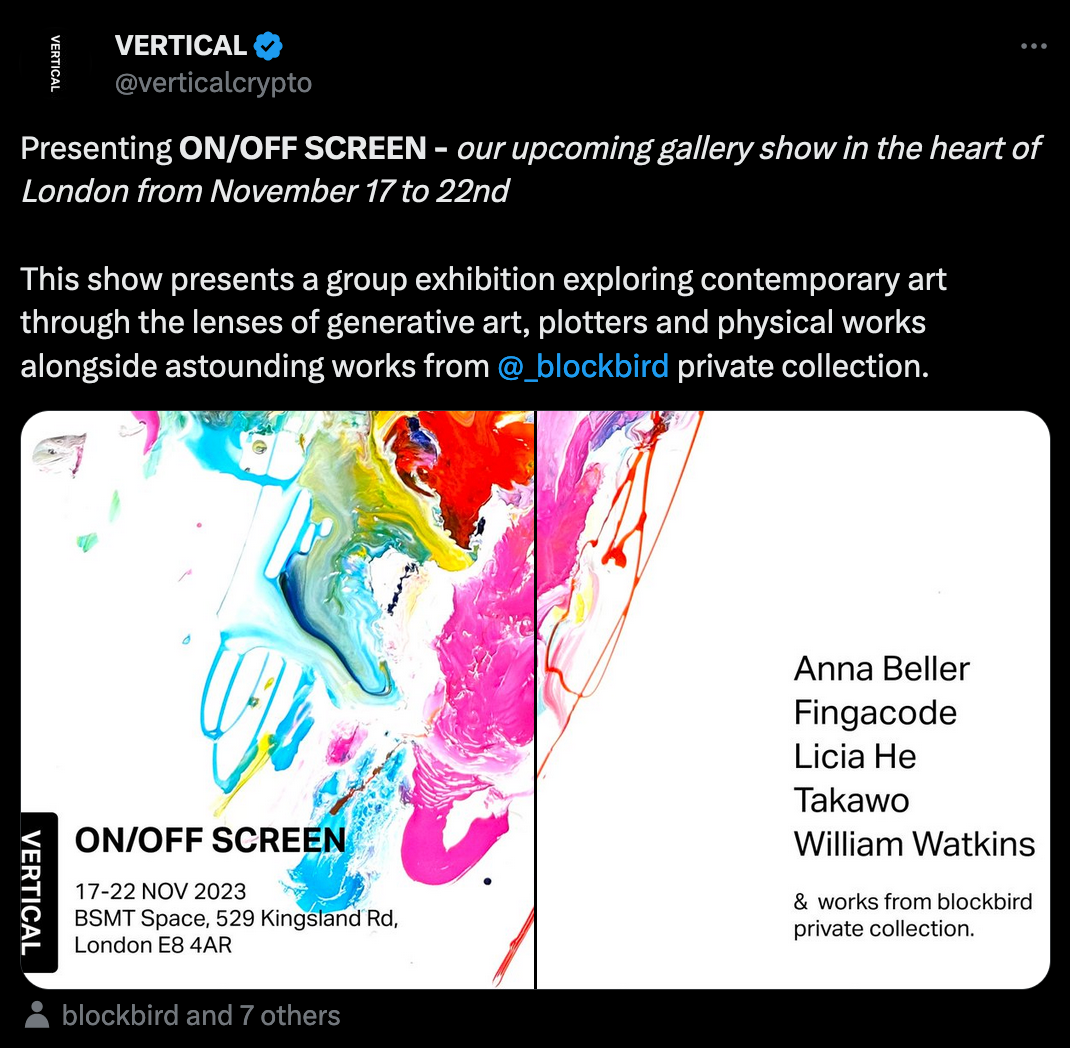
Presenting a mix of artworks displayed via digital and physical mediums, the aim is to highlight the interplay between the two and how they complement each other.
Spacefiller Quilts
Just as I sent out the newsletter last week, I came across a tweet by Spacefiller, announcing that they were working on generative quilts for their shop:
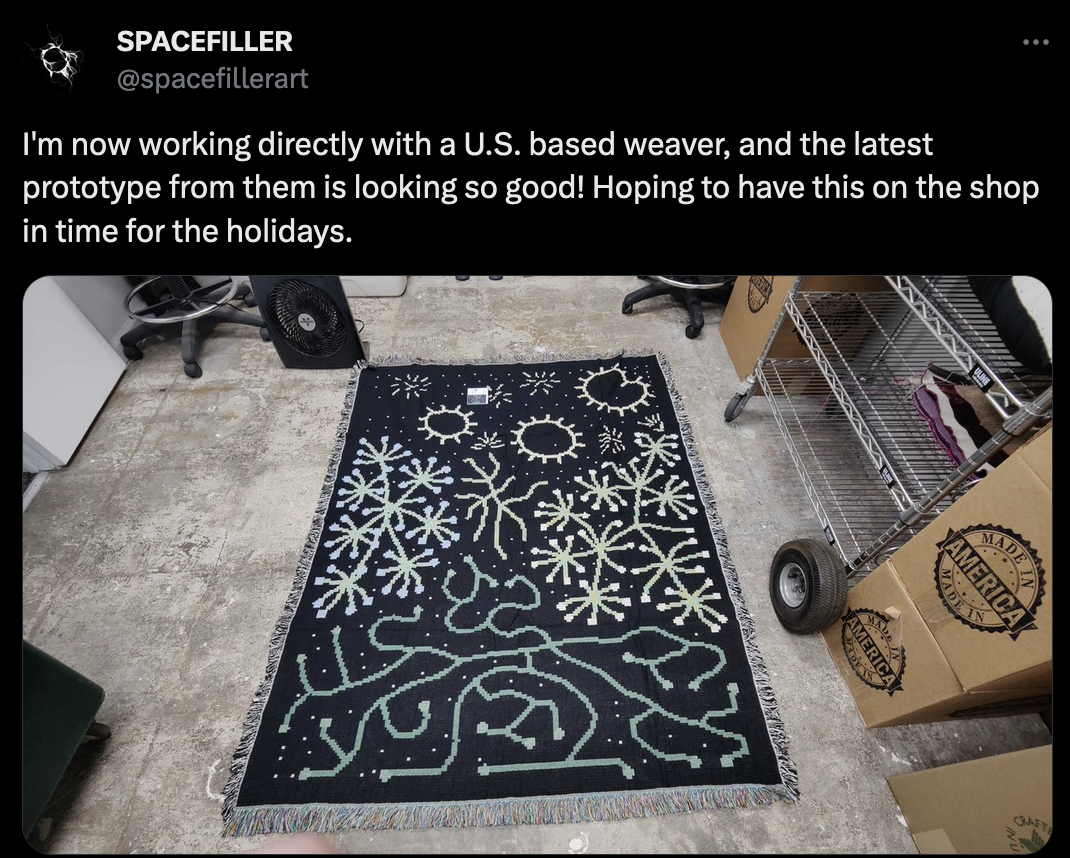
Spacefiller is a duo from Seattle that've cemented themselves in the generative art scene with their distinct style, creating insane physics based plant growth simulations:
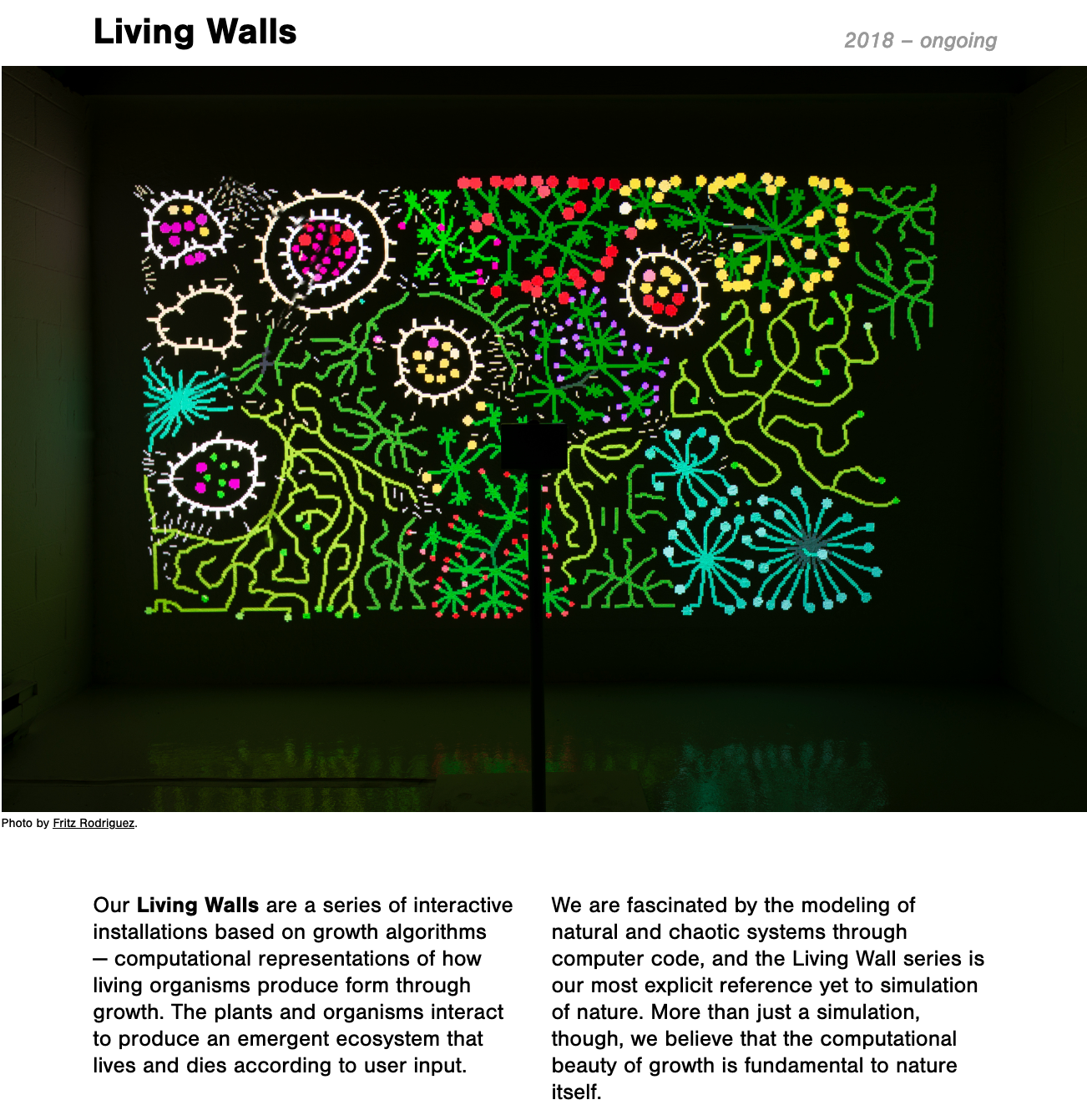
You might want to check out their work for a whole lot of inspiration.
Weekly Web Finds
Shaders in CSS
Cheng Lou operates at "the intersection of art and bad performance" with this whacky github repo that he put out into the world:
Yes, you read that right - CSS Shaders. By nesting a grid of HTML <p> tags within an SVG disguised as an img, these CSS "shaders" then basically enable animated graphics within a github README:
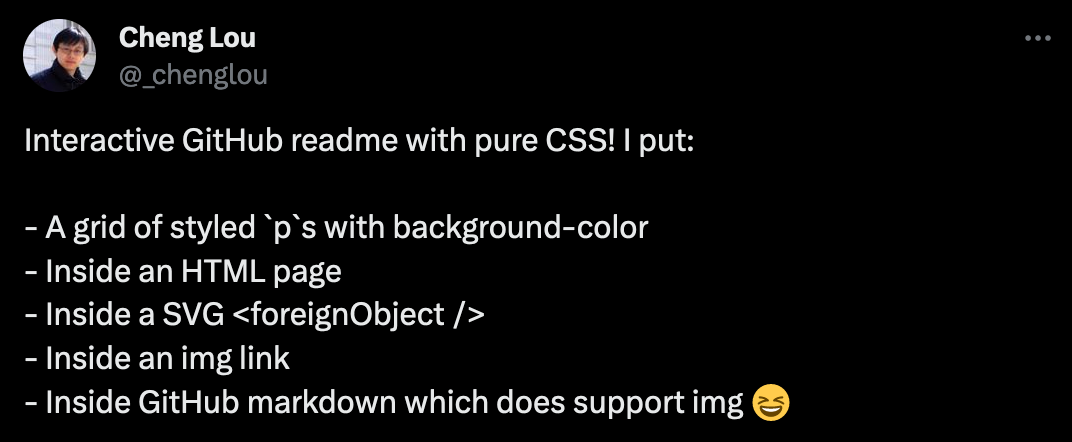
A game-changer in the github README meta, you'll most likely want to give it a try.
Tailswind CSS: It looks Awful, and it Works
Adam Watham, the creator of Tailwind CSS recently gave a humorous talk at Railsworld (the biggest Ruby on rails conference) about his brainchild:
After presenting a disgusting piece of HTML code littered with with representational tailwind classes, he makes the case that Tailwind is not as bad as it looks - he does so via an insightful live coding session.
Why Cities: Skylines 2 performs poorly
A deep dive into why the city building sim game Cities: Skylines 2 performs poorly. And when I say deep, I mean deep. Paavo really doesn't cut the game any slack and dissects it thoroughly unveiling all the inefficiencies that cause the poor performance - for instance the teeth controversy:
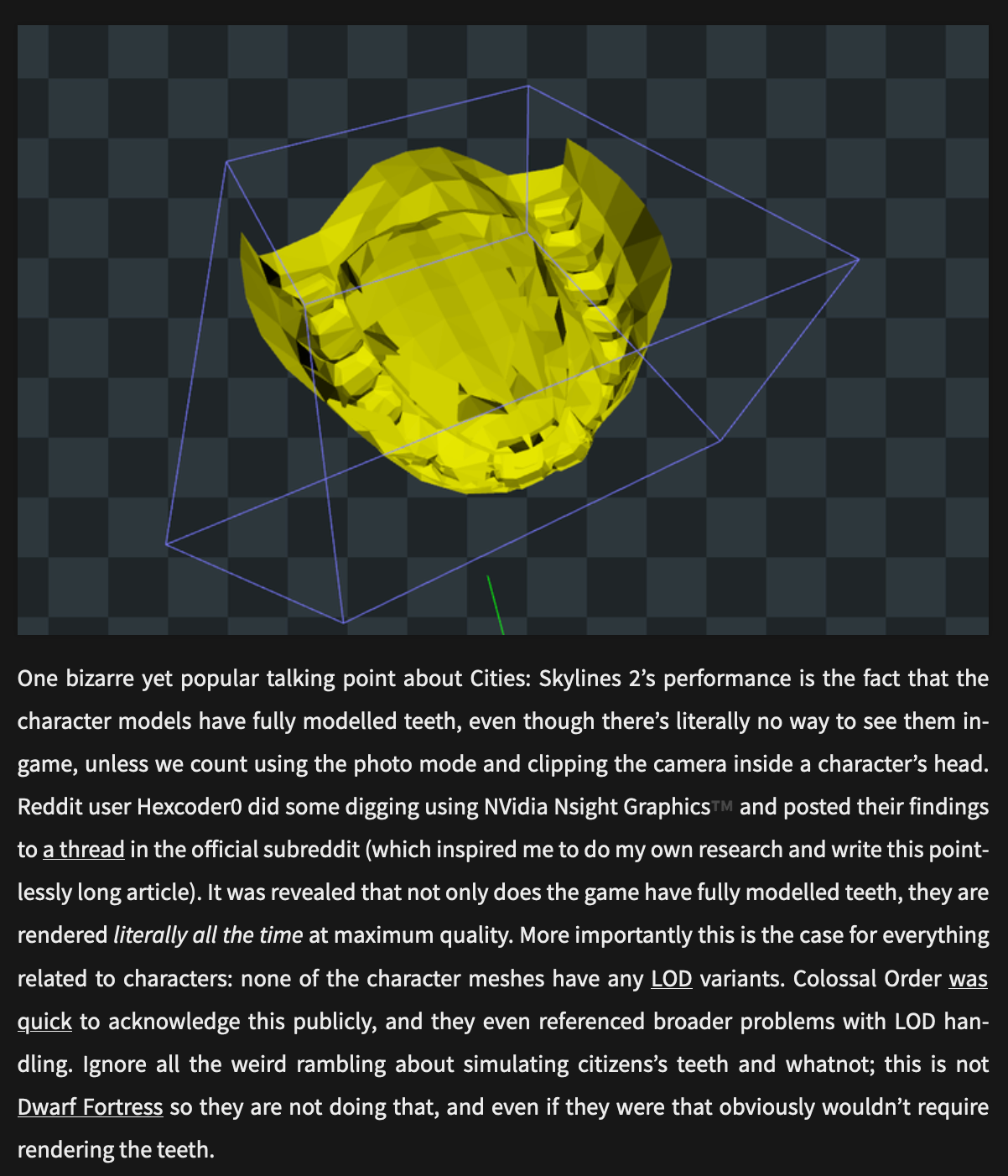
Apparently the game renders fully modeled teeth of every character in the game (it's a city sim so there's thousands of them at any given time) at any given moment.
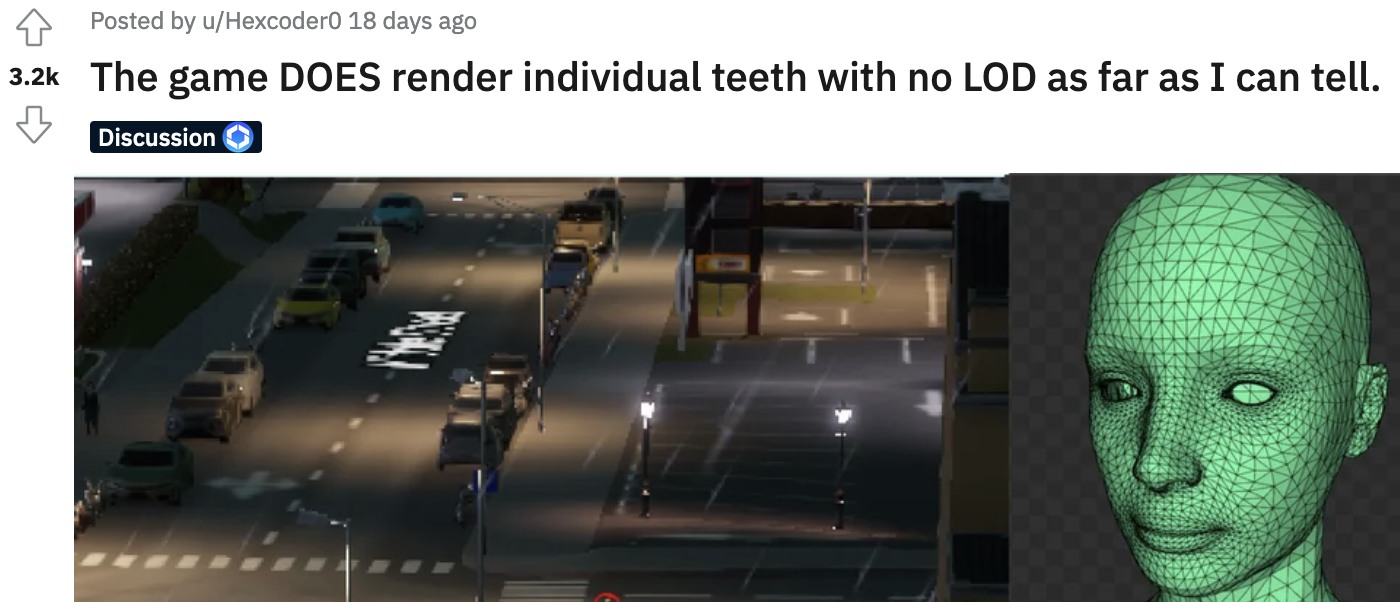
There's been numerous threads on reddit about it as well. It's an interesting read and an interesting deep dive, to me at least.
Kurt Vonnegut's 8 Rules for Writing
I'm not a fiction writer, but I've done a decent amount of writing over the past 3 years and I'll take every piece of advice that I can get on the topic, even if it doesn't directly apply. I came across Kurt Vonnegut's 8 rules for writing which I found profoundly interesting, as they're not immediately obvious ones:

I think his rule 'Start as close to the end as possible' also translates very well to tutorials and newsletters - don't spend too much time setting up and tell the reader what they came looking for, whether it's a story or an educational piece of information.
AI Corner
Real-time Diffusion model Sparks Controversy
A new kind of model has been making the rounds - the Latent Consistency Model makes almost real time image to image translation possible:
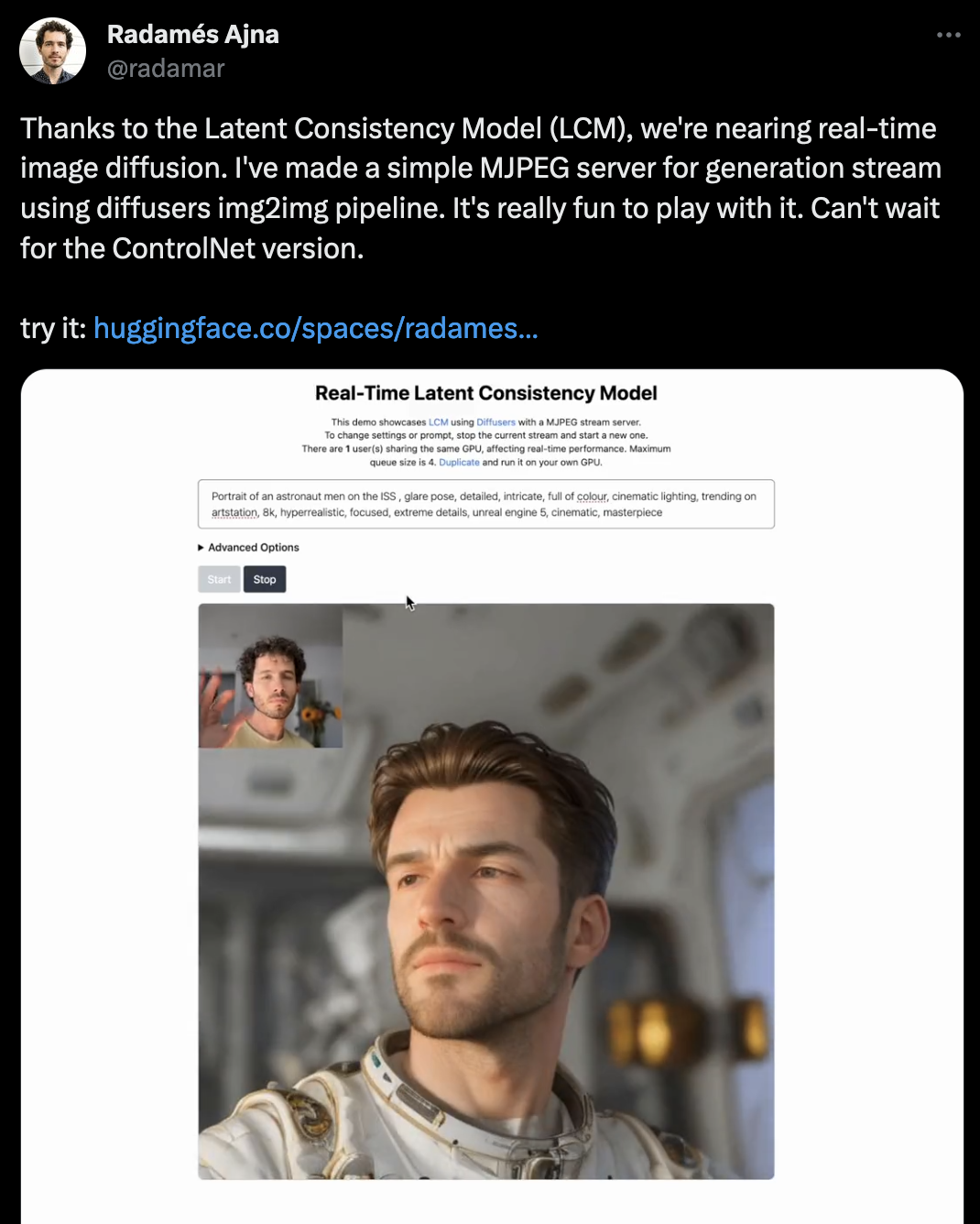
Moreover it can be easily run by users on their own machines. I don't know the full backstory of the controversy but apparently a tweet that showcased the capabilities of LCMs in translating a rough digital sketch into a fully fleshed out artwork apparently sparked some outrage:
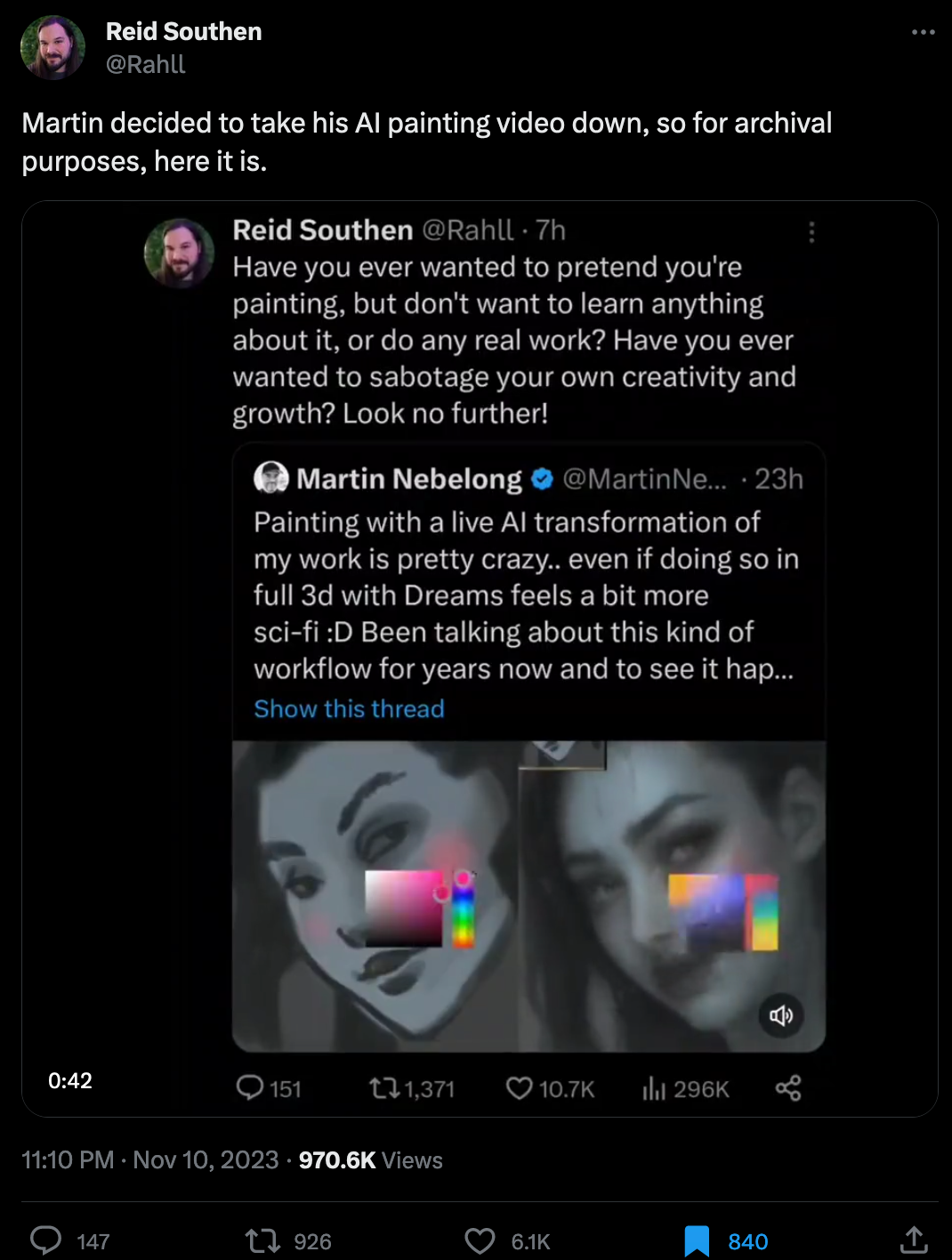
I feel that this harsh response is unwarranted, the demo is interesting and simply showcases the possibilities of the real time application - the same was already possible before with any of the big image generating models, just not as fast. This is not to say that I dismiss the shady practices that go into training these models - I've stated this several times already.
Martin Nebelong goes the extra mile to outline how to set this up in this Tweet:
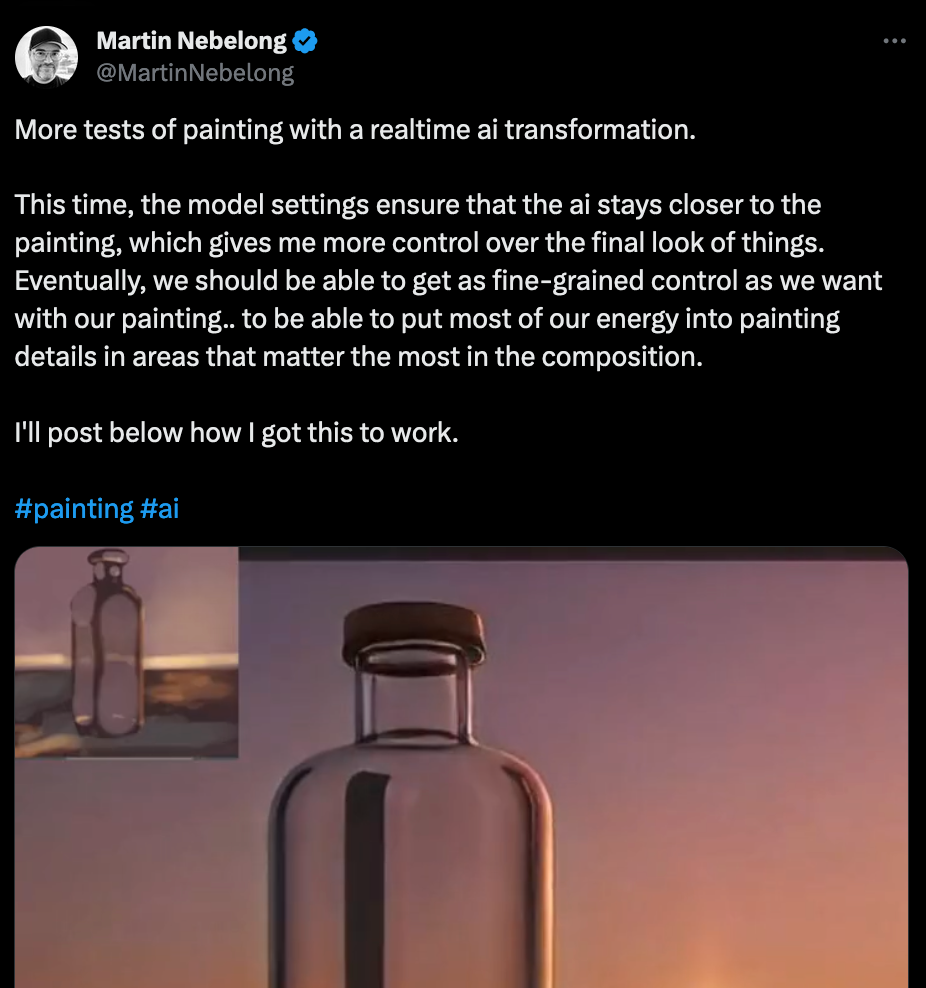
Gorilla Updates
Hot off the Press
A couple of days ago I had the pleasure of talking to Alessandro Fiore, a fellow generative artist who's created an impressive body of work in the short time span of two years:
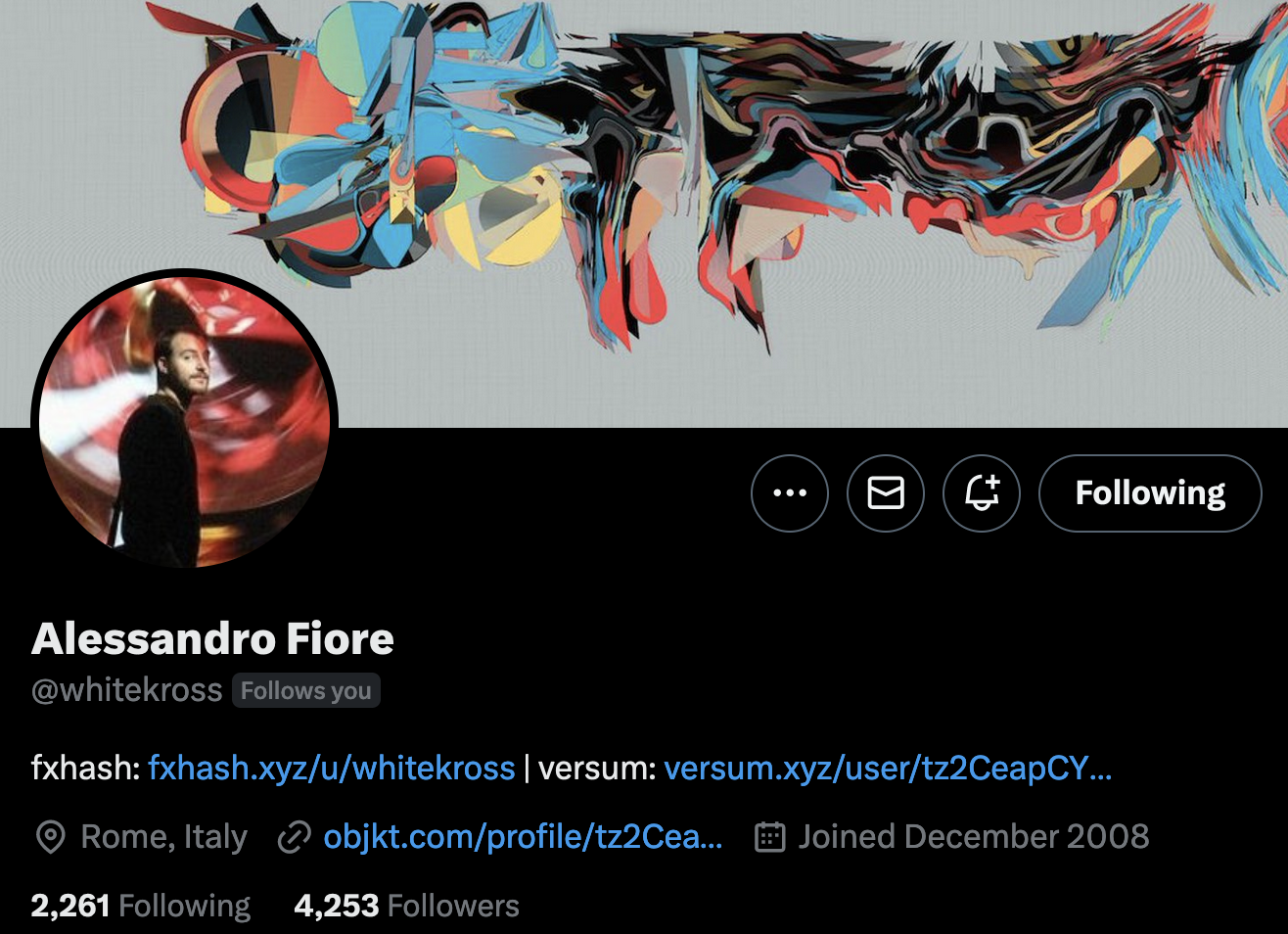
Alessandro took his paternal leave during COVID as a chance to rediscover generative art for himself, seeing fx(hash) take off at the same time just made the stars align in a very special way. Contemporarily he takes inspiration from traditional Italian abstract and geometric painters, adapting their ideas and turning them into generative sketches. Check out our conversation and go give Alessandro a follow on Twitter!
Fresh off the Easel
Continued working on this piece and people seemed to enjoy it quite a bit - I still haven't arrived at a final aesthetic yet but I think that I'm honing in to something:
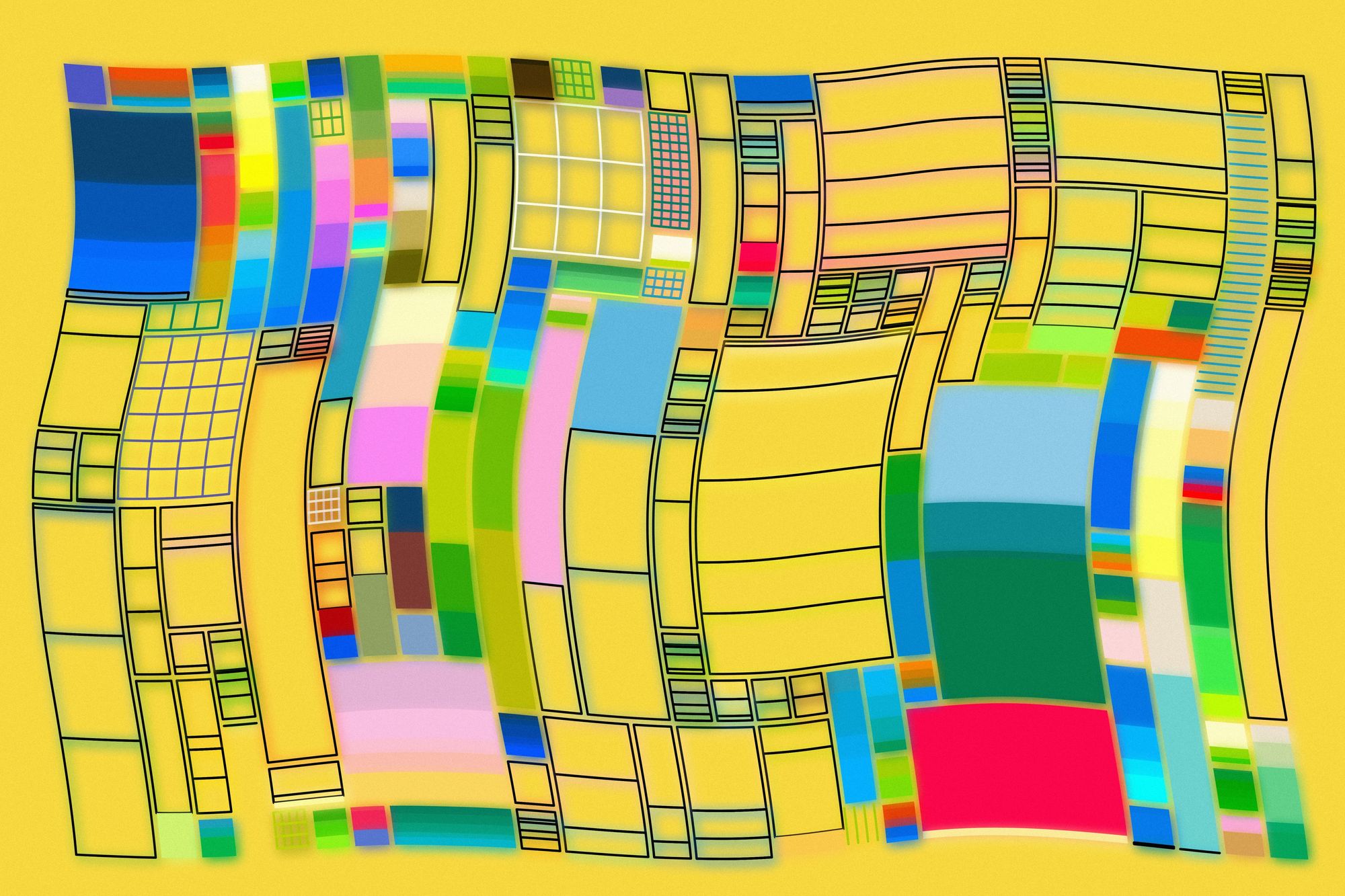
I quite enjoyed this mixed, almost incomplete aesthetic - although I still want to fill the at least some of the empty rectangles in some manner, maybe with hachures or grid-like patterns. I also have another idea for the grid, but I'll need to check when I have time to do that.
The rest of this month leading up to December seems like it's going to be a bit crazy!
Music for Coding
Another album from the Japanese treasure box - this time I'd like to feature Nomak, a sample based music maker that creates relaxing yet engaging mixes, blending sample with rap. I don't often listen to stuff with lyrics while working, but these mixes really didn't feel distracting at all.
If you enjoy artists like Nujabes you'll definitely also like this one:
And that's it from me this week again, while I'm jamming out to some these tunes, I bid my farewells, and I hope this caught you up a little bit with some of the events in the world of generative art, tech and AI in the past week.
If you enjoyed it, consider sharing it with your friends, followers and family - more eyeballs/interactions/engagement helps tremendously - it lets the algorithm know that this is good content. If you've read this far, thanks a million!
Cheers, happy sketching, and hope you have a great start into the new week! See you in the next one - Gorilla Sun 🌸
